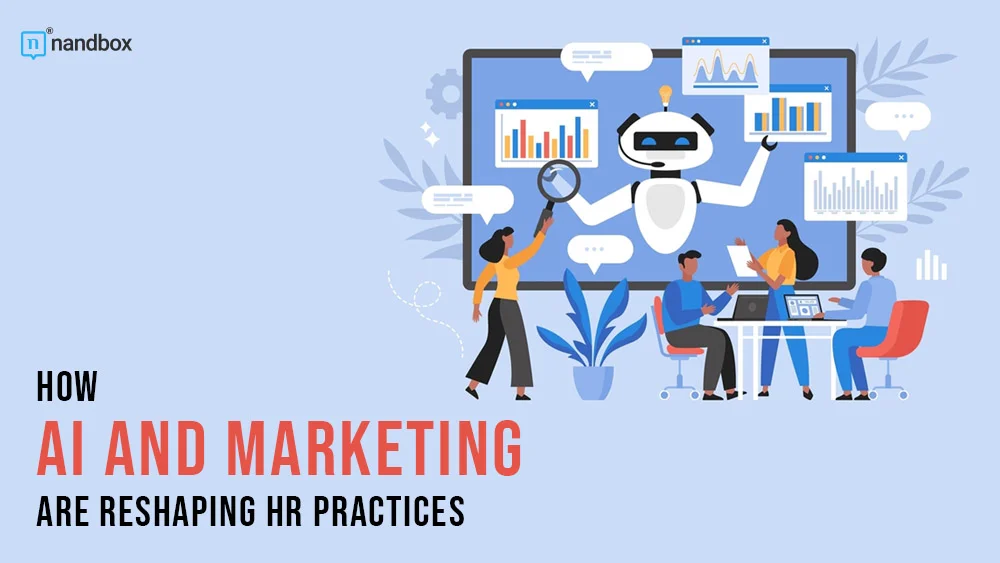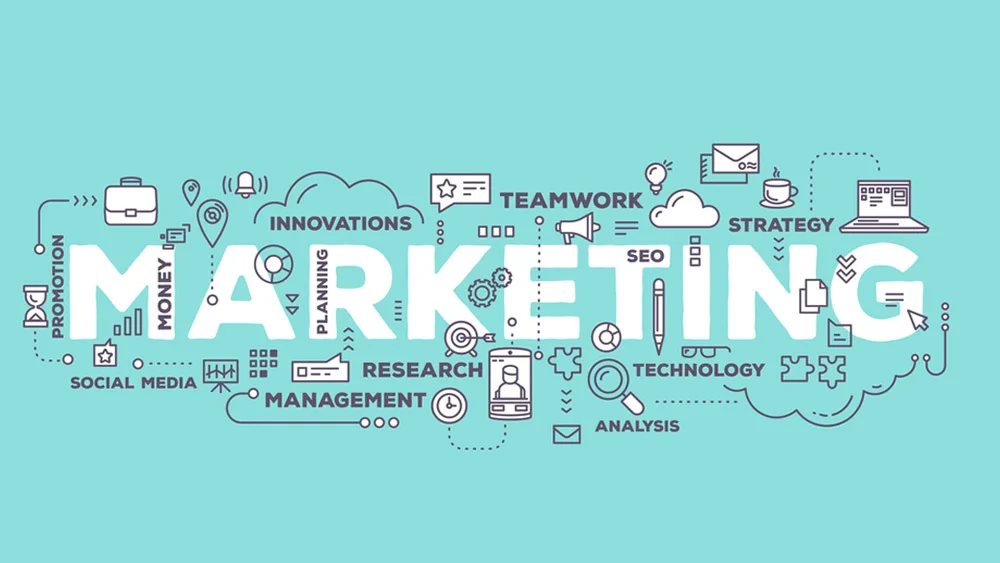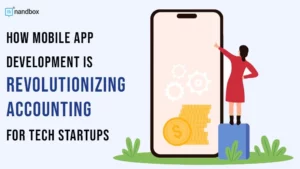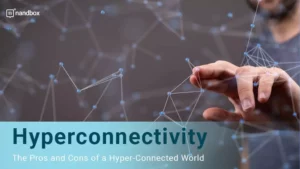The Intersection of AI, Marketing, and Human Resources: Transforming Practices
Human Resources (HR) is increasingly influenced by the integration of Artificial Intelligence (AI), marking a significant shift in recruitment and employee engagement strategies. This evolution is not just about adopting new technologies; it’s about fundamentally rethinking how organizations attract, onboard, and retain talent. So what are the benefits of AI in HR?
Michael Schaffer, CEO of Echo Factory, highlights the transformative impact of AI on recruitment marketing. He notes, “AI is revolutionizing the recruitment process, making it more efficient and effective. By leveraging AI, we’re able to source applicants faster and more accurately, focusing on candidates who are not only skill-fit but also culture-fit for the organization.”
AI’s influence extends beyond the initial stages of recruitment. Schaffer further explains how AI enhances the onboarding process, “Through AI-driven customized content, the onboarding process becomes more engaging and informative. This not only helps new hires acclimate to their roles efficiently but also sets a positive tone for their journey within the company.”
The integration of AI
The integration of AI in these areas demonstrates its role as a catalyst for innovation in HR practices. It’s reshaping traditional methods, making them more personalized and data-driven. AI’s capability to handle routine tasks allows HR professionals to focus on strategic aspects like building better employee relationships and enhancing workplace culture.
Continuing from the transformative role of AI in recruitment, the technology’s impact is equally profound in personalizing employee journeys within organizations. Milly Barker, a tech entrepreneur, and Founder of RemotePad emphasizes the capacity of AI to create individualized employee experiences, “AI systems, through their ability to analyze vast amounts of data, can identify individual employee needs, preferences, and potential areas for growth. This leads to tailored learning and development programs, crucial for career advancement and personal fulfillment.”
This personalized approach, enabled by AI, is a significant shift from the one-size-fits-all strategies of the past. By understanding the unique characteristics and aspirations of each employee, AI-driven programs can offer more relevant and effective development opportunities. This not only enhances the employee experience but also contributes to higher job satisfaction and retention rates.
Barker also points out AI’s predictive capabilities in managing workforce dynamics, “AI-driven analytics are instrumental in predicting employee turnover, enabling proactive measures to enhance job satisfaction and retention. This nuanced understanding of employee dynamics was previously unattainable through traditional HR methods.”
The shift towards a more data-driven, personalized approach in HR is a reflection of the evolving workplace and employee expectations. In today’s dynamic work environment, employees seek opportunities that align with their personal and professional goals. AI’s role in facilitating this alignment is crucial, as it helps HR professionals not just understand but also anticipate the needs and aspirations of their workforce.
The Integral Role of Marketing in AI-Driven HR Strategies
As we delve deeper into the realm of AI-driven HR practices, it becomes evident that marketing plays a pivotal role in the successful communication and implementation of these initiatives. The synergy between HR and marketing is crucial in ensuring that the benefits of AI in HR are not only understood but also embraced across the organization.
Jeff Mains, CEO of Champion Leadership Group LLC, offers insightful perspectives on how marketing can bridge the gap between AI technology and its practical application in HR. Mains highlights the importance of marketing in articulating the value proposition of AI-driven HR systems, “Marketing serves as a conduit for communicating the benefits and value proposition of AI-driven HR software to internal stakeholders as well as potential consumers. It’s about building a narrative that emphasizes AI’s ability to streamline HR processes, improve decision-making, and foster a more productive work atmosphere.”
This narrative is essential in aligning AI initiatives with the company’s culture and values. Marketing strategies are instrumental in translating the technical advantages of AI into relatable and compelling stories that resonate with employees.
This storytelling approach is key to facilitating the acceptance and integration of AI within HR practices. Mains further elaborates on the role of marketing in integrating AI solutions, “Marketing ensures that these AI solutions are effectively integrated by aligning them with the company’s brand and culture. This includes conveying the synergy between technology and the company’s values, enabling a smooth transition, and encouraging employee adoption.”
The role of marketing
The role of marketing in AI-driven HR strategies extends beyond mere promotion. It involves a deep understanding of the organization’s culture and the ability to communicate how AI tools can enhance, rather than disrupt, the existing work environment. By doing so, marketing helps to change perceptions and foster a positive attitude towards AI adoption within the organization.
The integration of marketing into AI-driven HR strategies is not just about disseminating information; it’s about crafting a narrative that facilitates the acceptance and integration of AI within HR practices. The art of storytelling in marketing plays a pivotal role in this process. It’s about creating a narrative that connects the technological aspects of AI with the human elements of the workplace, making AI relatable and its benefits tangible to the employees.
Jeff Mains’ insights underscore the importance of this storytelling approach, “It’s not only about advertising the technology; it’s about building a story that emphasizes its ability to streamline HR processes, improve decision-making, and foster a more productive work atmosphere.”
This narrative-building is crucial in overcoming any skepticism or resistance to AI. By presenting AI as a tool that aligns with and enhances the company’s values and culture, marketing can facilitate a smoother transition and encourage employee adoption.
The synergy between AI and marketing
The synergy between AI and marketing is further exemplified in enhancing employee engagement, as illustrated by Gianluca Ferruggia’s experience with AI tools in remote HR settings. Ferruggia, Managing Director of Design Rush, has observed firsthand how AI can personalize employee experiences, even in remote work environments, “We use AI-powered platforms like UKGPro for talent management and tools like ‘Culture Amp’ or ‘Peakon’ for employee feedback and sentiment analysis. These AI tools enable us to understand our remote employees’ needs and aspirations better.”
In these instances, marketing ensures that the communication about these AI tools is clear, engaging, and aligned with the employee’s needs. Humyon Sal, Marketing Specialist at Digital PR states, “Effective communication is key to ensuring that employees not only understand the AI tools but also see them as beneficial additions to their work life.” This is where marketing strategies come into play, crafting messages and campaigns that highlight the advantages of these tools in a way that resonates with the workforce.
Ferruggia’s experience underscores the importance of marketing in this context, “Marketing plays a crucial role in crafting and disseminating clear, engaging messages about these technologies to our remote workforce. Effective communication ensures that employees understand and adopt AI tools as both technological solutions and integral parts of their work-life that offer real benefits.”
The Future of AI and Marketing in HR
As we gaze into the future of HR practices, the integration of AI and marketing stands out as a pivotal area for continued advancement and innovation. The convergence of these fields is not just a passing trend but a fundamental shift in how HR operates and engages with the modern workforce.
The potential for future advancements in integrating AI and marketing within HR is immense. AI’s evolving capabilities in data analysis, predictive modeling, and personalized experiences, combined with marketing’s expertise in communication and engagement, are set to create more dynamic and responsive HR practices. This synergy will likely lead to even more sophisticated methods of talent acquisition, employee development, and retention strategies.
However, the path forward requires a commitment to innovation and adaptability. The rapid pace of technological change and the evolving expectations of the workforce demand that HR professionals remain agile and open to new approaches. This means not only adopting new technologies but also rethinking existing practices and being willing to experiment and learn from both successes and failures.
Strategic communication
Strategic communication, a core strength of marketing, will continue to play a crucial role in this evolution. As new AI tools and methodologies are introduced, effectively communicating their benefits and aligning them with the organization’s culture and goals will be crucial for their acceptance and success. This will involve not just disseminating information but engaging in meaningful dialogue with employees, addressing concerns, and building trust in these new technologies.
Moreover, the importance of continuous learning and development in HR cannot be overstated. As AI and marketing reshape HR practices, professionals in this field must stay abreast of the latest developments and trends. This involves not only technical learning about new AI applications but also developing skills in areas like change management, ethical considerations of AI, and effective employee engagement strategies.







